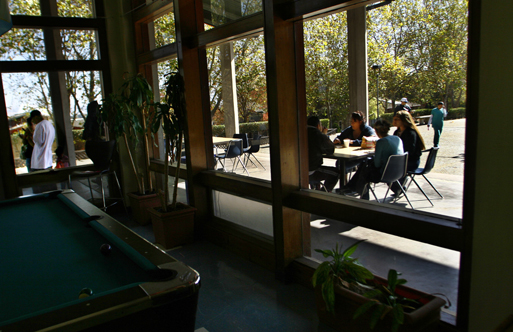
First-year students at Gavilan College who planned the basics of their futures this school year when they started classes will receive an extra carrot: priority registration.
Freshmen who started recently and completed an assessment, orientation and educational plan; declared a major; and outlined an educational goal such as earning a degree, certificate or enough coursework to transfer to a four-year university – earned first pick of classes. The new “carrot and stick” approach to education planning for first-year students is part of a state-mandated Student Success and Support Program plan.
“It’s putting a new emphasis on services we’ve always known that students need,” said Leslie Tenney, a counselor at the college. “And this is allowing us to provide those services more effectively and more efficiently.”
Prior to this, students were supposed to have career goals and educational plans, but many didn’t. Every freshman student was supposed to do an orientation and assessments “and hopefully an education plan,” Tenney said.
“But there was never really any teeth behind that in terms of ensuring that they got those services,” Tenney said. “If they didn’t do it, they just didn’t do it.”
While the SSSP plan rewards students who seek help planning their futures, it also represents a landmark shift in the way that community colleges – and especially counseling departments – receive funding from the state.
The state-mandated SB 1456 trickled down so that funding for certain student services at community colleges, such as Gavilan, would now be based on the number of students who received assistance. This means community colleges across California no longer get lump sums to fund their counseling programs or placement tests.
“That’s a huge, huge difference in how all the colleges will have to do business,” said Kathleen Moberg, the vice president of student services.
Moberg and Tenney said it’s too early to know all the implications of rolling out the new program or even the weak points of it. Moberg, though, worries the new program is too focused on first-year students and may leave out groups of the school’s population including re-entry students who lost jobs and are returning to school so they can pick up additional work skills.
“Everyone is really concerned about continuing to be available to all students, and we don’t want to leave anybody out,” Moberg said. “And if this process does that, we’ll all be getting back to the state chancellor’s office.”
The SSSP plan focuses on students seeking degrees, career technical education or transfers to four-year universities – leaving single-course takers, lifelong learners and transfer students at a disadvantage.
“The major change is that all new students – all brand-new students to college – are the focal point and they always were, but now everyone else is less of a focal point because of the state mandate,” Moberg said.
As of Sept. 23, the Assembled Student Body at Gavilan had discussed SSSP but did not have an official position on the program. At that time, ASB President Joey Hayes declined to comment on the issue because the ASB office did not have an official opinion. Hayes did not respond to follow-up emails by deadline.
Hayes wasn’t the only student weighing the pros and cons of the SSSP plan last Tuesday. Another Gavilan youth, psychology student Roquelina Celia Guerrero, hadn’t heard of the SSSP plan but liked the idea of priority registration.
“It’s a great deal to us students that have that opportunity,” she said.
Guerrero has been at Gavilan about a year and during that time she’s had trouble getting a class at least twice during her two semesters on campus.
As counselors prepare to roll out the new system, staff members such as Tenney are looking forward to testing the program, even if they don’t know all its implications yet.
“I think that some of it has yet to be seen but, like I said, we’re excited about it,” she said. “We think that (it) will make a difference in terms of student success. We’re really hopeful and we’ll keep making adjustments until it seems to be working as well as it can.”









